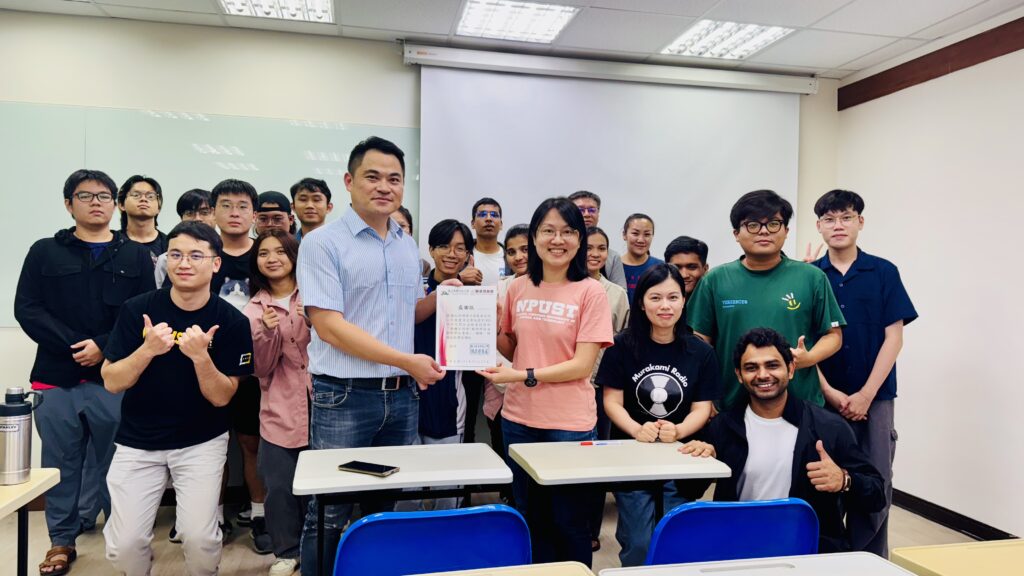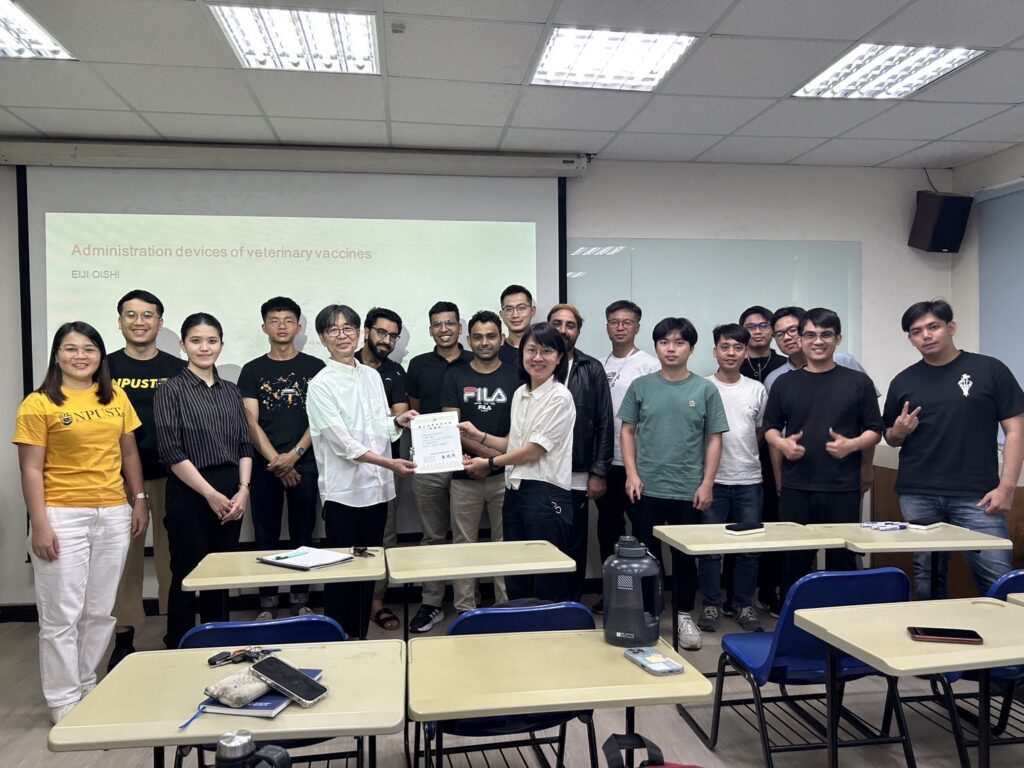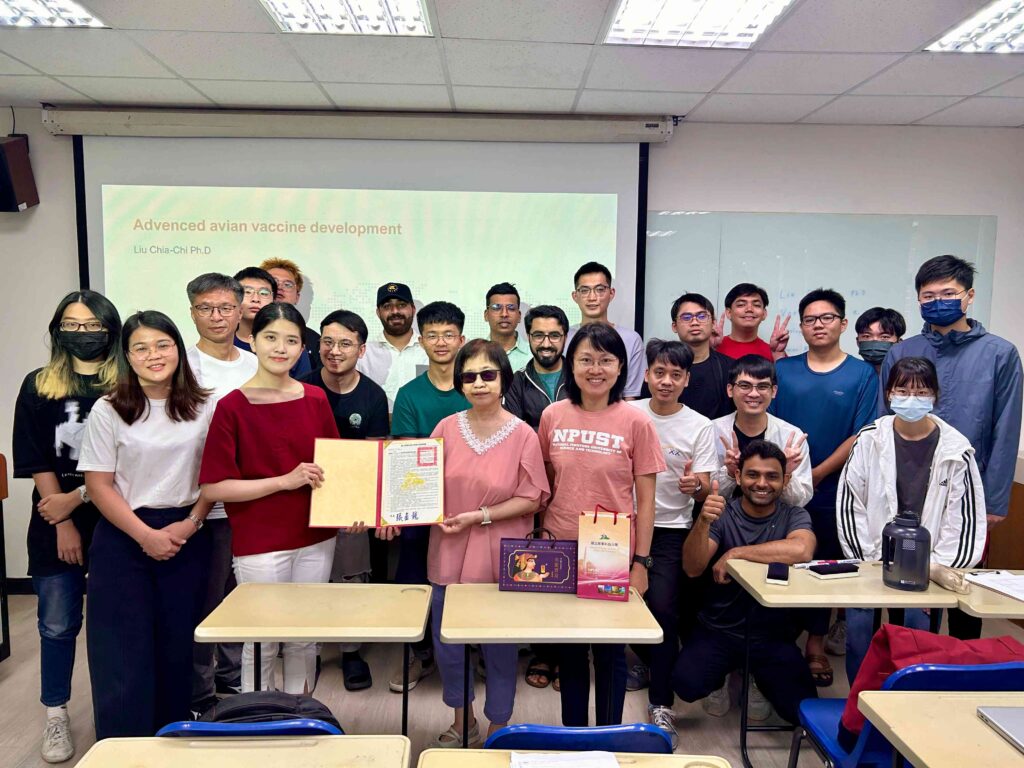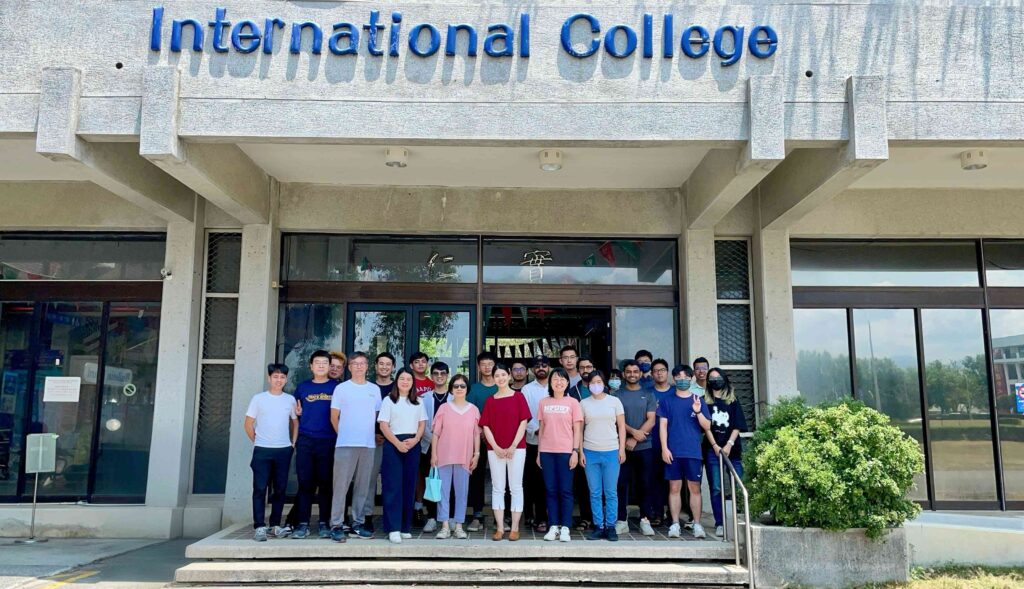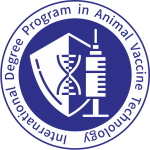Mr. Ping-Yi Chen, the Marketing Manager at HUVET Pharma, recently delivered an insightful talk on “A Career Path: From Biotechnology to the Livestock Industry.” During the session, he shared his educational journey and professional experiences that shaped his career.
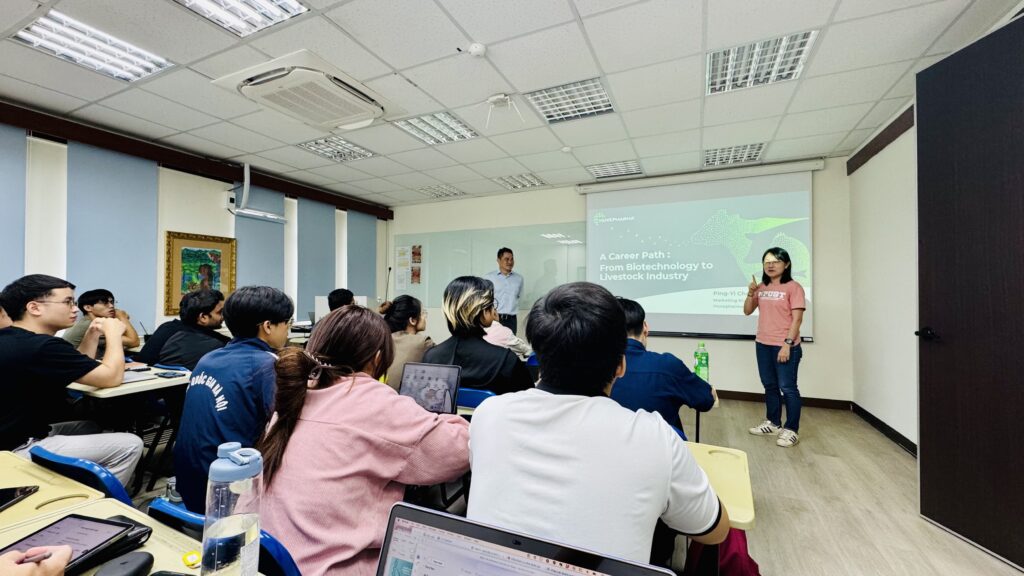
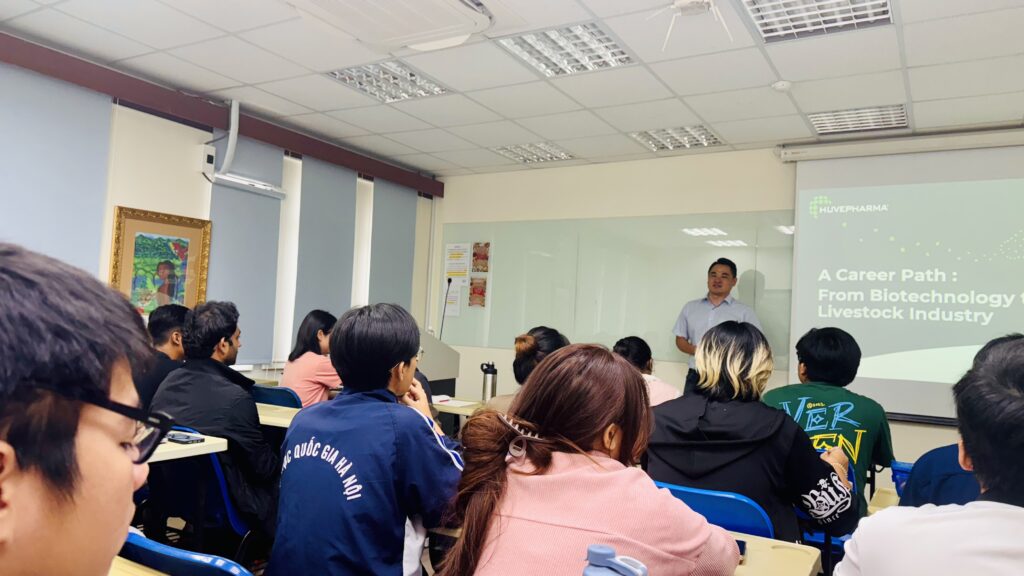
Mr. Chen discussed his academic background, highlighting his pursuit of a Master’s degree, which laid the foundation for his expertise in biotechnology. He began his career working on a Chinese industrial farm, where he started as a worker and progressed to the role of farm manager. This hands-on experience provided him with valuable insights into the livestock industry, which he later applied in his position at HUVET Pharma upon returning to Taiwan.
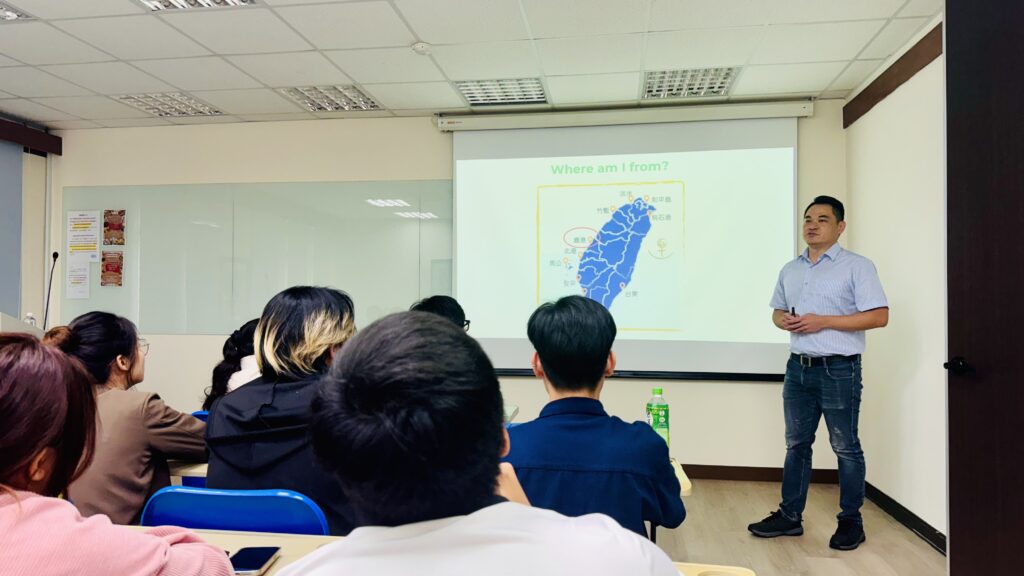
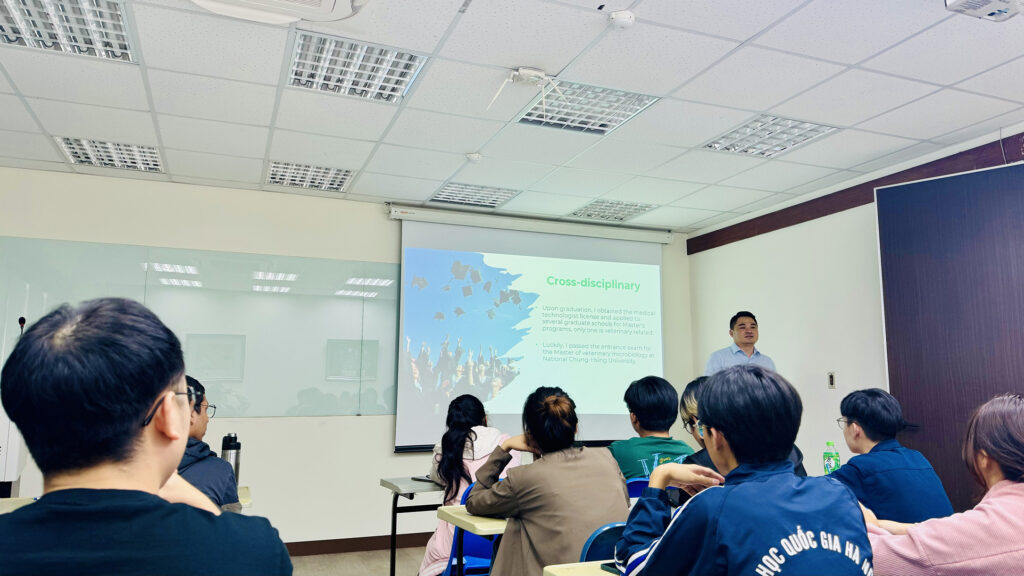
In addition to sharing his personal journey, Mr. Chen emphasized the various job opportunities available for students from the International Animal Veterinary Technology (IAVT) program. He encouraged attendees to explore careers that bridge biotechnology and livestock management, noting the increasing demand for professionals in this field.
His talk not only inspired students but also highlighted the importance of integrating scientific knowledge with practical experience in advancing animal health and productivity.
